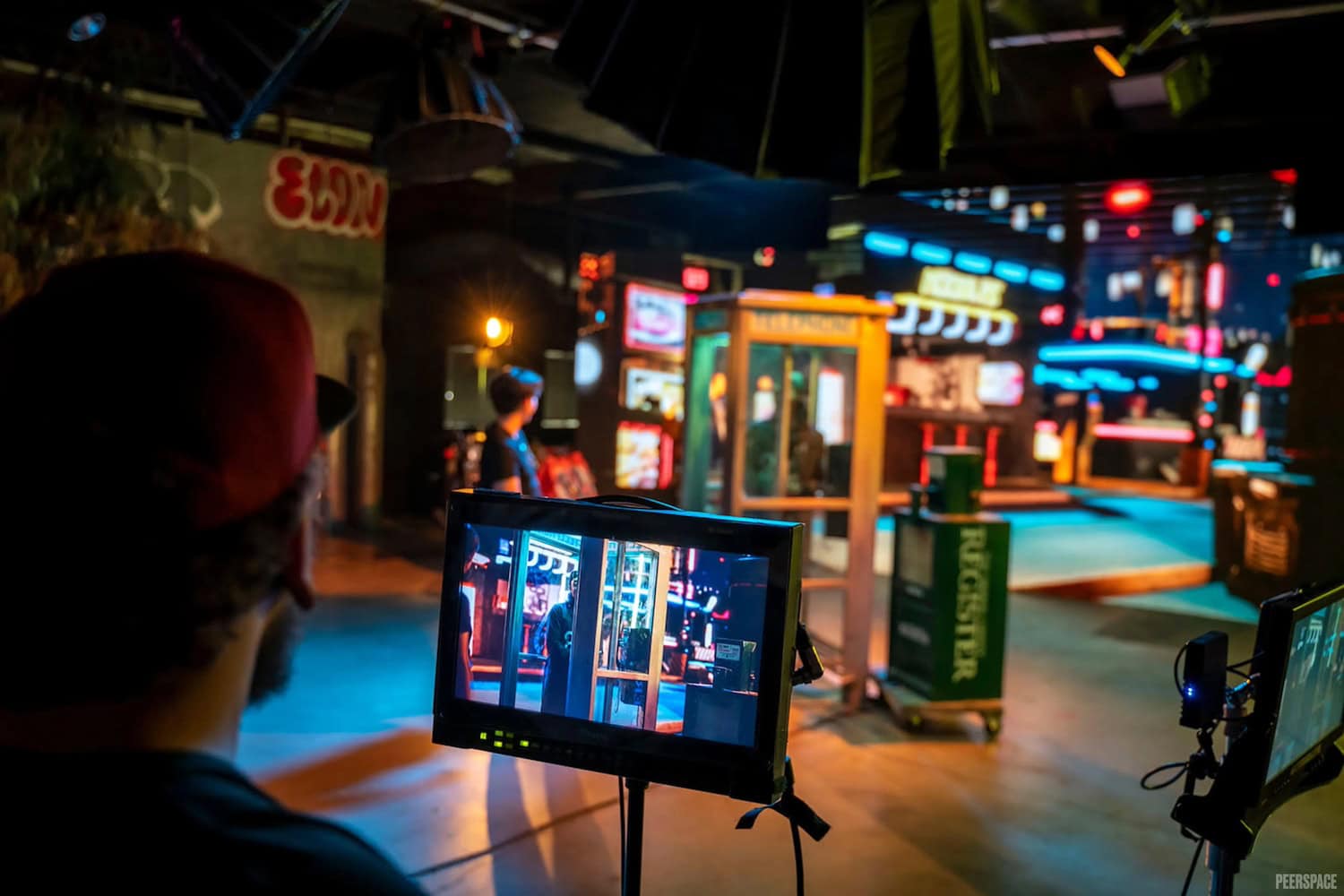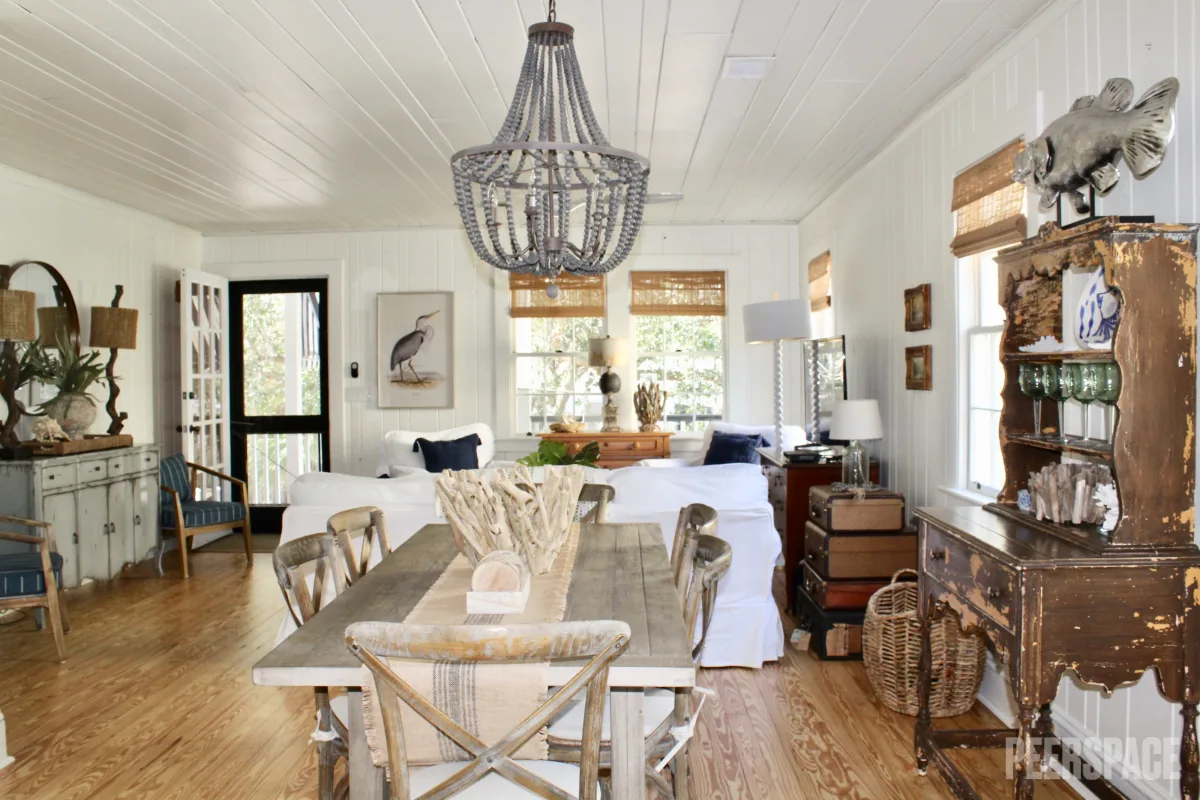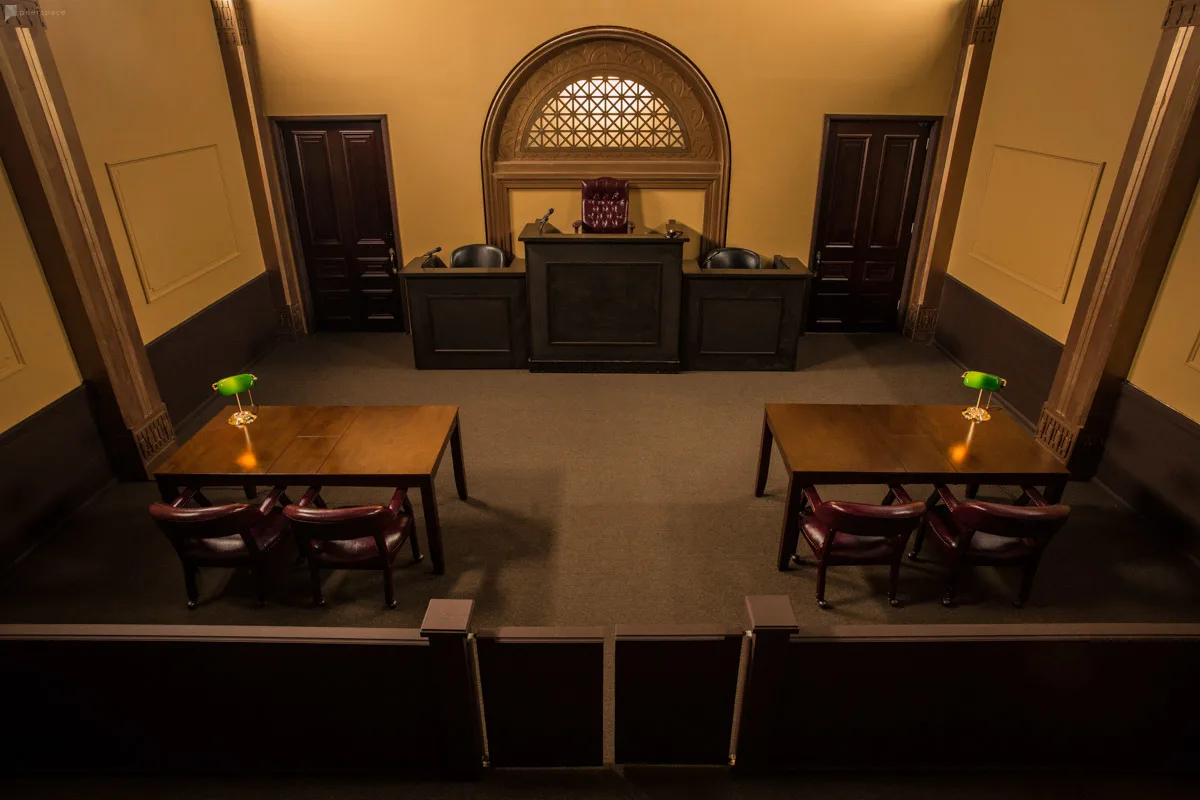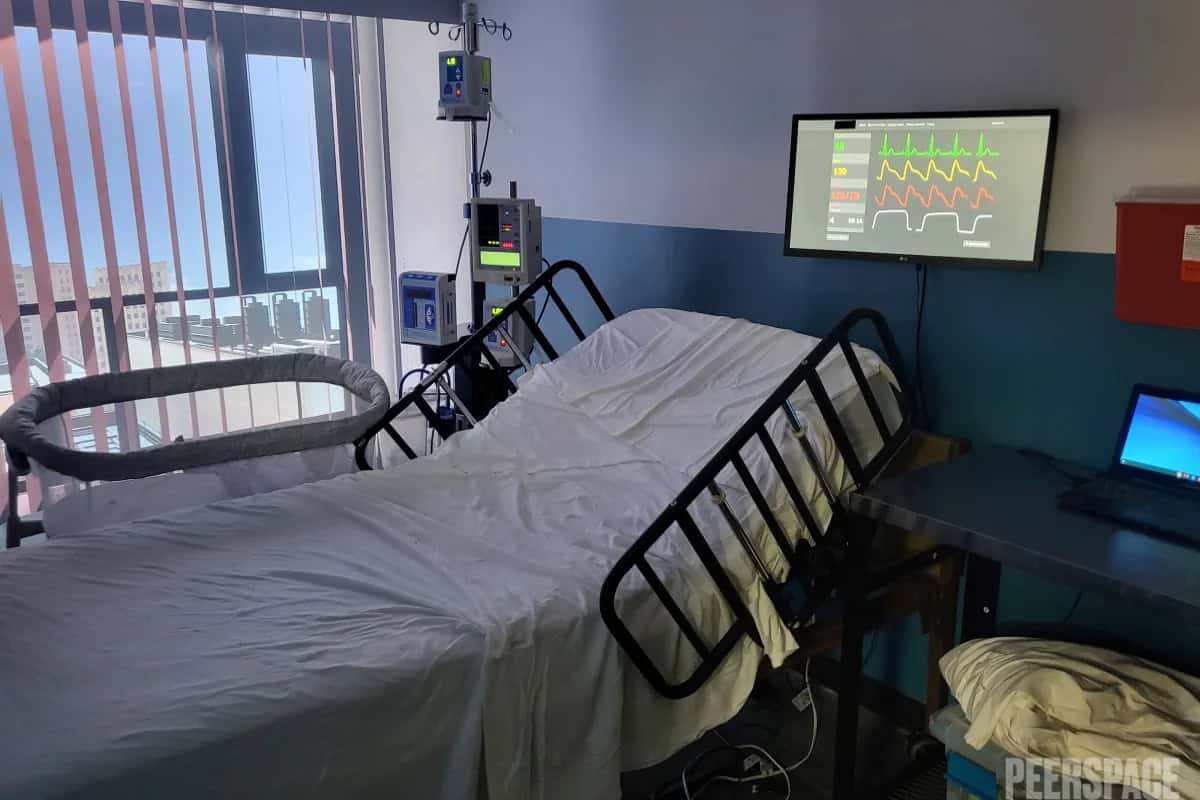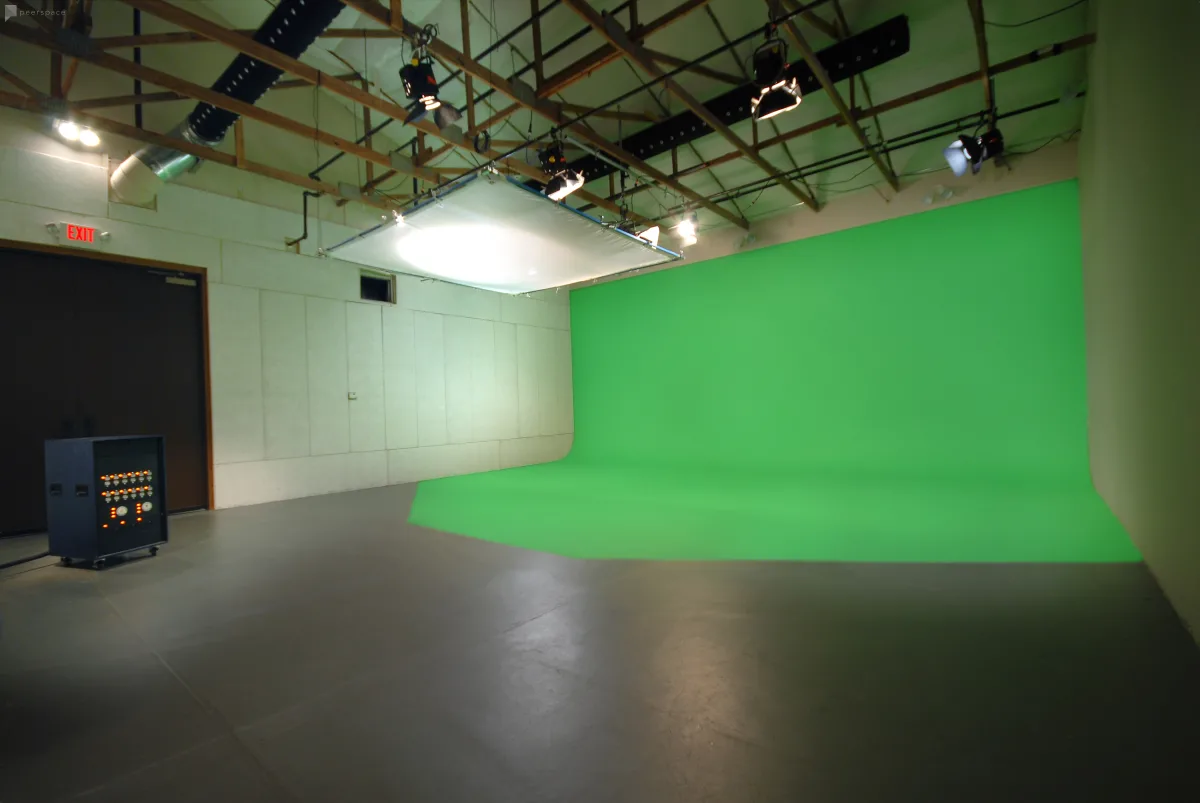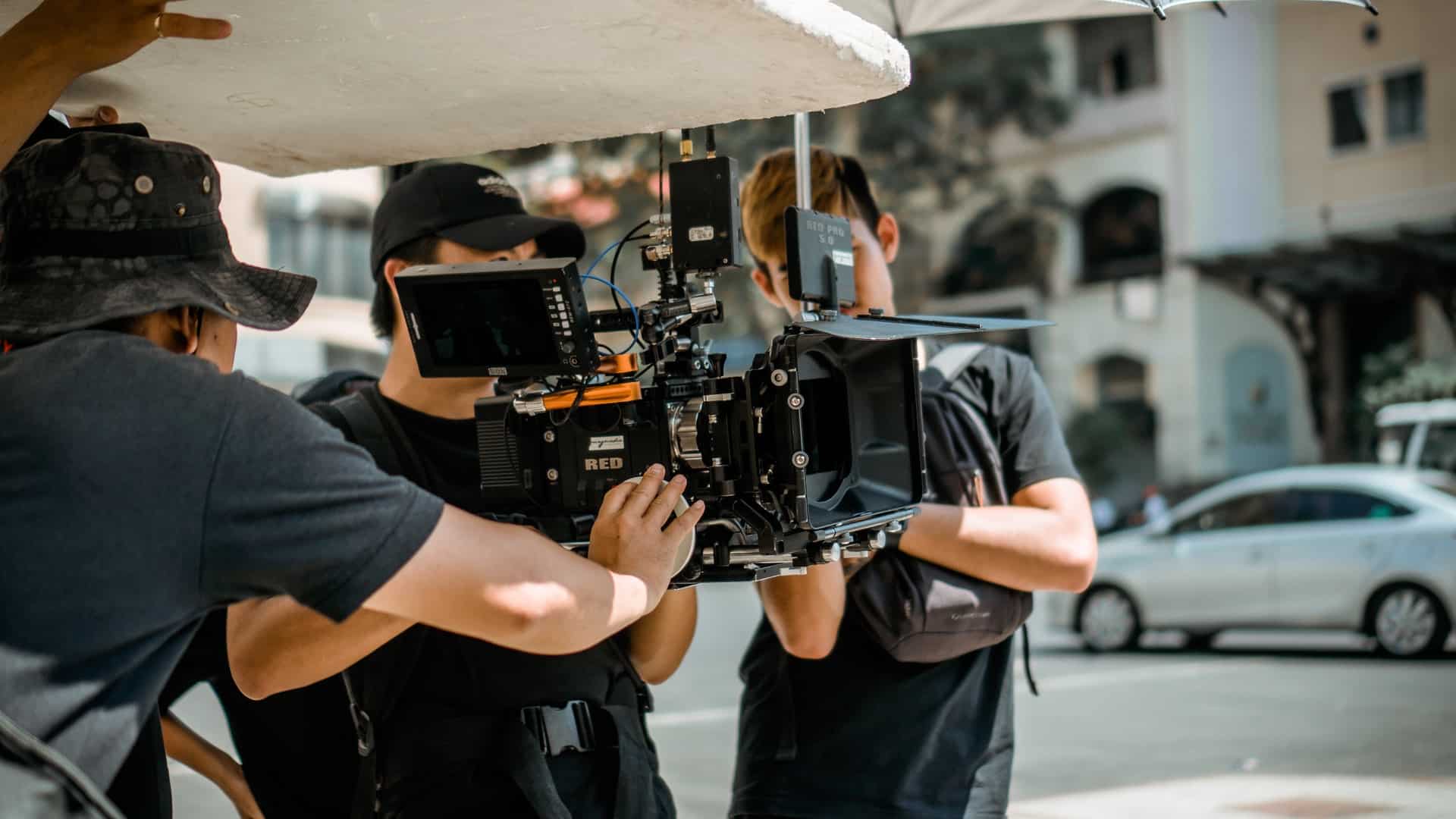
Source: Pexels
It isn’t always obvious when a continuity error occurs in a movie or television show, which is why it’s the job of the script supervisor to make sure everything in the frame aligns from shot to shot. Each department is mindful of their job on set, keeping track of the consistency of the lighting setups and wardrobe changes, but even still, things can slip up in the everyday hustle of a film set. Errors might distract a viewer from the story or cause confusion. So hire a professional script supervisor on your next production, then browse Peerspace’s easy-to-use database to find the perfect shoot location. That said, find out what a script supervisor does and why they are essential.
What does a script supervisor do?
As the title entails, script supervisors are in charge of knowing every facet of the shooting script and overseeing the consistent follow through each day. This means looking out for all departments in terms of continuity: makeup, hair, clothing, props, set dressing, lighting, performance, composition, and anything else that might affect the edit. In those ways, they are the representatives for the screenwriter and the editor on set.
Why are script supervisors important?
Shooting film or television can stretch for weeks or even months. If shooting multiple seasons, production can stretch for years. Script supervisors make sure that every seam in between days of shooting lines up and is noted in the “scripty notes.” The crew can rely on a script supervisor to remember the exact placement of a prop or how an actor held a prop.
In addition, the script supervisor also adds context to the dailies an editor receives, noting what takes worked, what happens in each take, and what the director said about each one. Script supervisors keep the filmmaking process streamlined and organized from development to editing.
What is a script supervisor’s task during different phases of production?
Pre-production
During pre-production, a script supervisor prepares by breaking down the script. A script breakdown consists of listing out elements within the writing and dividing them by department. For example, if the script calls for a rainy day with characters holding umbrellas and dressed warmly, then the elements that stand out include the setting, the props, and the wardrobe.
The script supervisor lists every element by scene, location, character, and any other vital part of that particular story. By doing this, they can understand the ins and outs of the script for each department, as well as figure out how each creative decision is made and how that might affect the transition from shooting to editing. They also read the script through, taking into account the director’s vision, pacing, and performance.
Ultimately, this process helps them determine the technical and creative requirements of the film or TV episode in order to bring up concerns that might arise in production or even further into post-production. The script supervisor clearly sees the film in their minds so they can answer any questions about the final edit, keeping up to date with script changes, which happen often, even during the production stage.
Production
In production, the director might end up changing dialogue or cutting out moments or entire scenes. The script supervisor transfers those changes and distributes the script updates to all departments so everyone remains on the same page.
On top of that, the script supervisor takes priority where the viewing monitors are set up to watch the footage as it’s shot and played back. The script supervisor is right there alongside the director to watch for every detail that demands to be jotted down. Did an actor miss a word of dialogue? Did they pick up the mug with their left or right hand? What time does the prop clock say at the beginning of the shot? What side of the face is the “bruise” makeup on?
The script supervisor takes meticulous notes, known as “scripty notes.” They photograph what the frame and set look like at the beginning of a take and at the end to keep the changes consistent for repeating takes and different coverage of the same scene. In their notes, they’ll also jot down what the director thinks about every take and point out any errors. The director will either choose to move on or correct the mistake with a reshoot. In the end, it’s the director’s call.
In their notes, the script supervisor will also line the script. This means that they mark a line down the coverage of each shot, giving a visual indicator of what was skipped or might still be missing, which comes in handy for the editor later on.
Post-production
During post-production, the script supervisor consolidates all their notes into a production boo, which includes the lined script, the scripty notes, and any other report that they can add in for the editor and director. This helps the editor understand what they are looking for and what will work. Because the script supervisor has the mentality of an editor on set, a lot of the notes appeal to an editor’s way of thinking, simplifying the process of scanning through all the raw footage.
How do you become a script supervisor?
Like most professions in the film industry, you have to start from the bottom. Because there is no specific department assigned to the script supervisor, it’s best to become a production assistant first. Network your way up by making it clear what your interests are and talking to the script supervisor on sets you work on.
Gain experience on a set and understand how to read a screenplay, analyzing it and breaking it down. A skilled script supervisor has to have a keen eye for detail and a great memory. They take notes quickly and are thorough, observant, organized, and analytical. And of course, they aren’t afraid to speak up and make it known when there is a problem. The entire crew needs to be able to count on the script supervisor, the watchful protector.
Find unique production venues on Peerspace
Get together somewhere better
Book thousands of unique spaces directly from local hosts.
Explore SpacesShare your space and start earning
Join thousands of hosts renting their space for meetings, events, and photo shoots.
List Your Space

